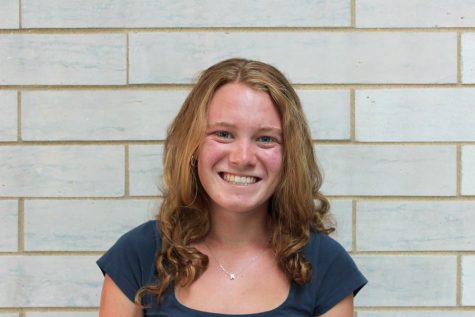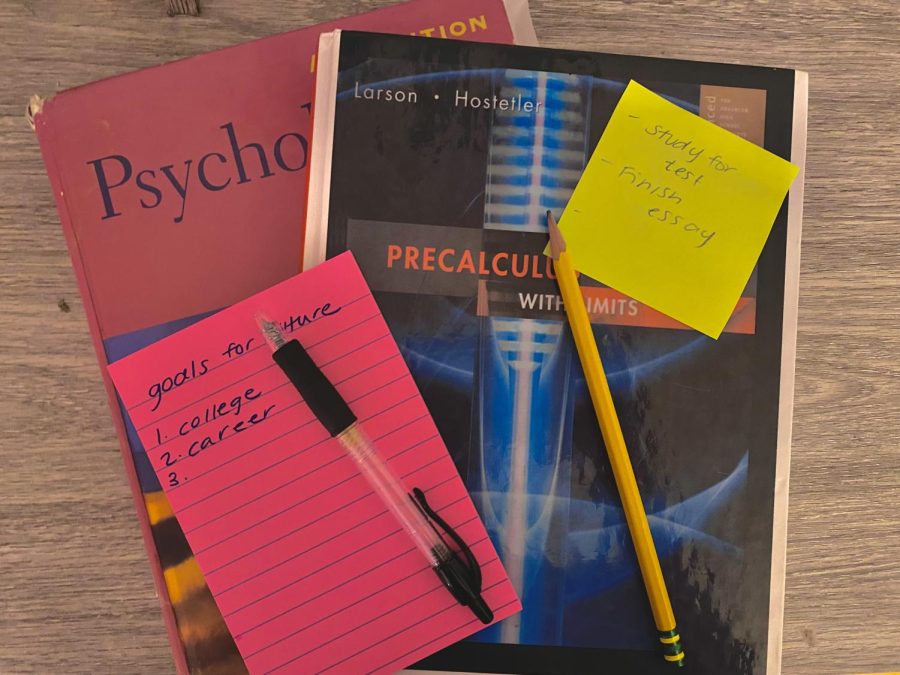Students defy odds with their keys to productivity
Making detailed lists and using goals can help students stay productive and motivated even when it is difficult.
According to the American Psychological Association (APA), most children in primary school find school to be engaging and exciting. Despite this, research shows that after second grade, students excitement and motivation for learning rapidly begins to decline especially once they have reached the secondary level. Those who manage to stay productive throughout secondary school are few and far between and employ strategies that help them stay engaged throughout high school and avoid procrastination.
While many students strive to be productive, it can be difficult to achieve. Nearly half of students in Gallups 2014 poll report being, “unengaged” or “actively unengaged”. With unengagment being so prominent, DGS counselor Nicholas Teesov identifies common ways productive students at DGS stay motivated and engaged.
“These students have identified goals that serve as motivation for them. For example, some students know that they need good grades to get into their dream college. They use these goals to motivate them to complete uninteresting or challenging tasks,” Teesov said.
Junior Elizabeth Culcasi is considered by many of her peers to be highly productive as she is constantly working on assignments or studying for tests. She shares what goals keep her motivated to stay so productive.
“College is my general goal, but it’s not my motivation for everything I do. I would say knowing that the discipline that I’m showing now will help me in college or my future career helps me stay motivated.” Culcasi said.
This productivity doesn’t come easily. It requires discipline and careful planning from students to keep themselves from getting off task. Teesov explains how students can implement this.
“Making a plan that is specific, measurable, and has a timeline. For example, if you know you have a paper due in 2 weeks, create a plan for how you are going to accomplish each part,” Teesov said.
Culcasi shares that she enjoys making detailed, lists, calendars and agendas to help her plan out her studying and complete the assignments she needs to get done.
“I make a schedule even if it’s not written out, just like on my phone. If it’s like a long weekend coming up in my notes app I make a huge list of things I have to do and then I cross everything out. I also like to make agendas for everyday and then write everything down and color code everything,” Culcasi said.
Culcasi also shares that she tries to use as much of her free time during the day to finish her school work.
“I’m always trying to do stuff…sometimes I’ll do work during lunch or even in between passing periods I’m finishing assignments or making lists or just getting stuff done. Even while I’m eating breakfast sometimes,” Culcasi said.
She believes that time spent on her phone is wasted time that is better spent getting other school work done.
“If you have time where you are just sitting there going on your phone thinking ‘I could be doing something right now,’ if you have your schoolwork you might as well [do it],” Culcasi said.
This is common among many productive DGS students. Junior Chase Tomecki employs a similar strategy to get his work done.
“At lunch sometimes I do some homework I got earlier in the day and by doing my homework right when I get home I finish before night time and still can get plenty of sleep for the next day,” Tomecki said.
These students also indicate that they try to get assignments done as soon as they are assigned. Junior Johanna Rodeck explains that she prefers to spread her assignments out over several days.
“I make sure to get my assignments done ahead of time or as close to ahead of time as I can get the work done. If I get the work done last minute it just stresses me out so that rarely happens. If I get the work with multiple days to complete it, I will do my best to spread the work out over different days so that I won’t be stressed when the deadline comes,” Rodeck said.
Tomecki also spreads his work out over several days, specifically when he studies for tests.
“If I have to prepare for a test I like to spread it out so that I am reviewing every day and will be ready come test day,” Tomecki said.
Unlike Rodeck and Tomecki, Culcasi states that she rarely does her work over multiple days, but instead does it all at once.
“Personally I kind of use the procrastination method of doing it all at once, but I never do it right before. So I’ll do it all at once usually, but way earlier than it’s due so for example in AP European History there is a lot of reading for that, I don’t actually split it up very much, I typically just do it right at the beginning of the unit read it all and then have time to do other stuff,” Culcasi said.
Although there is no right way to be productive, all of these students agree that making study plans, avoiding procrastination, and using any free time within the school day ensures that they remain productive. While it is evident that it is hard to stay motivated in high school, these students reveal that it is not impossible


